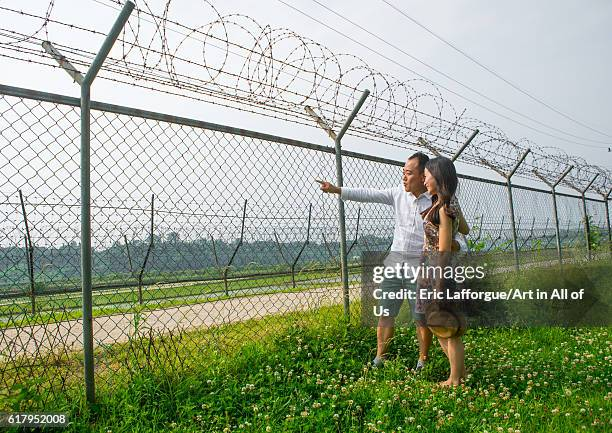Over the years we heard a lot about defectors from North Korea to South Korea. Below is a summary of some of the news that the Catholic papers have covered over the recent past on those who have come from the North.
As of 2023, there are approximately 34,000 North Korean defectors who have settled in South Korea. When defectors come to Korea they go to the North Korean Defector Settlement Support Office operated by the Ministry of Unification commonly called Hanawon.
Here, they are introduced to Korean society and are trained for jobs. It is a place all defectors must go, a second home to them. To write this article they met with the Hanawon Director to discuss Hanawon’s work and role, the characteristics of recent North Korean defectors entering the country, and ways to strengthen cooperation with religious organizations to ensure the emotional stability of North Korean defectors.
According to the Ministry of Unification, 196 North Korean defectors entered South Korea last year. This is three times the number in 2021 (63 people) and 2022 (67 people), during the COVID-19 pandemic. There were also two cases of defection by sea, which had not occurred in the previous three years. By gender, women accounted for the majority at 164. In particular, more than half of those entering the country, 99 people, were in their 20s and 30s. 70% of defectors came from the provinces, bordering North Korea and China.
The Director said: "Recently, more people defected because they dreamed of a better future rather than because of hunger. In the past, the main reasons for defecting were hunger and economic hardship. Then came dissatisfaction with the political system and a yearning for freedom. However, now the main reasons for defecting have changed to a better future and an improved quality of life, such as children’s education. They want to live in a freer world."
"This change is largely influenced by South Korean broadcasts and TV dramas, K-pop, etc. Many of the people who come to Hanawon now have some knowledge of South Korean society. Just looking at the fact that North Korea has recently greatly strengthened its laws to crack down on the (Korean Wave), it shows that the yearning for South Korea is growing in North Korean society and that it is becoming a threat to the system."
When North Korean defectors come to South Korea, they are investigated by the National Intelligence Service and then transferred to Hanawon. Here, they receive 12 weeks of adaptation training before entering South Korean society. They learn what is necessary for living in Korea.
"Defectors think of Hanawon as their second home, they really felt like they were on a picnic. They invited defectors who were physically disabled or financially struggling. Everyone was very touched. Many people said they wanted to hold such events more often."
The director said: "The number of North Korean defectors who entered South Korea in the first half of this year exceeded 100, and although North Korea is increasing sanctions such as border control, he expects the number of people entering this year to increase by about 30% compared to last year."
Religious events play an important role in the Hanawon educational program. The director said: "For North Korean defectors to settle down in society not only material support but also emotional stability is very necessary. Religious events provide psychological and emotional stability to North Korean defectors. On Sunday mornings, four major religious events are held: Catholic, Protestant, Buddhist, and Won-Buddhist."
The director especially praised the Korean family experience event for North Korean defectors in which the Catholic Church participates. Currently, the Catholic Church is holding family experience events in the Suwon Diocese and the Archdiocese of Seoul. "Among our programs, there is one called ‘Family Culture Experience.’ It is designed to enhance the understanding of our culture and market by allowing North Korean defectors to come into contact with ordinary citizens, share feelings, experience real family life, and engage in shopping activities with volunteers. They eat, sleep, and live in (volunteer) homes for one night and two days, and see how each family lives. The Catholic Church proposed this and connects many with (volunteer) homes. It is a significant experience for many North Korean defectors to feel the warmth of our society during the initial settlement process."
The director said, "Many defectors have no ties to South Korea, so they still have a hard time adjusting to society. We will continue to find ways to strengthen cooperation with religious circles."
The Director stated: "I will continue to do my best to help North Korean defectors settle well into Korean society. During the recent North Korean Defectors’ Day event, the president talked about settlement, capacity, and harmony for North Korean defectors. It’s all related to Hanawon. We are providing education related to the initial settlement of North Korean defectors, and we are doing the initial preparation stage to help them get a good job. Lastly, harmony is about being able to leave Hanawon and live better with our people, and education at Hanawon ultimately plays an important role in this as well."
Defectors are a large group working for the unification of the Country.
